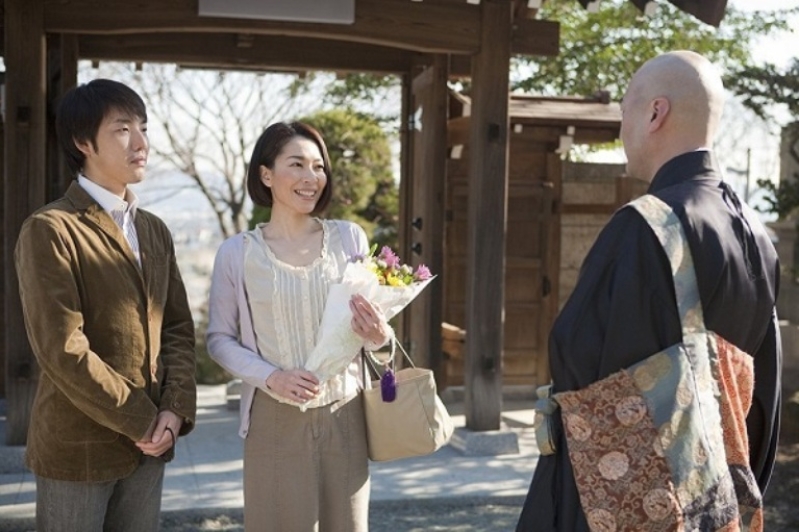
Buddhists in Japan just took technology-based religious services to a novel level by booking Buddhist priests online through a new company called "Obo San bin," which roughly translates to "Mr. Monk delivery." The Amazon-based new service reportedly has been well-received by Buddhists who were plagued by what they call exorbitant fees charged by traditional temples for priests to conduct rites, such as burials and memorials.
Many Japanese Buddhists indicate they don't have easy access to religious rites, so this new, online delivery option meets their needs. Buddhists who tried the service loved it, reports World Religion News.
The root cause that prompted this delivery service is due to Buddhist temples being mostly located only in Japanese villages; most of which are likely to close down soon because a number of Japanese villagers are moving to bigger cities. Japanese cities have little or no religion at all, reports World Religions News. As such, when Buddhists need priests to conduct rites, they are at a loss.
Journeying to traditional Buddhist temples can be an expensive affair because the "donations" that are solicited in return for the religious services are very high. Additionally, there is no fixed fee for such services, so monks can name any price they choose.
The basic plan offered through Minrevi Co. on Amazon costs 35,000 yen, or approximately $300 US dollars, reports Forbes.
Monks ordered online report to homes or other locations to perform traditional memorial services. Several upgraded plans are available, according to Forbes. For an estimated $420 US currency, one can have a service in more than one location, and for $520 to $550, a loved one can be awarded a posthumous Buddhist name, which is a critical part of the funeral process that often costs very high amounts at temples.
While critics suggest the monk delivery program will further weaken ties between Japanese and their local temples, others accentuate it offers an important service for a price typically not available elsewhere.
Representatives of the Japan Buddhist Federation released a statement critiquing the new online service and defending the practices of local temples. "Donation is not a consideration for providing services," said name Akisato Saito, the organization's director. "Similarly, it is also not a consideration for awarding a posthumous Buddhist name."
There are 75,000-plus temples in Japan, according to the Associated Press, and many, especially in rural areas, are expected to close as traditional community ties weaken and donations slow to a trickle.






